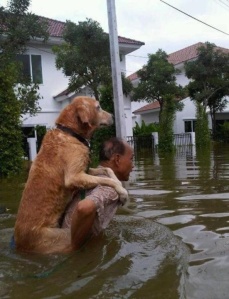Have you come to the point where you routinely say things like, “I hate people!”?
Once, your heart was overflowing with love and compassion. Now your heart feels pulverized and sickened from feeling too much pain for the defenseless.
You are an animal welfare worker or volunteer, or you are involved in dog rescue or cat rescue, or you are an animal rights activist, or perhaps you are a vegan—or just sensitive to and well-informed about the unnecessary suffering of animals.
You have a heart for the voiceless. The mindless cruelty that causes the hellish conditions of abused animals everywhere, in puppy mills and slaughter houses, leaves you shaking with shock and anger.
The sense of entitlement that allows people to torture and maim animals for profit or fun, or ruin their habitats, outrages you. The thoughtless ignorance that permits people to “forget” to take care of the lives depending on them bewilders you and leaves you in a state of disbelief. The irresponsibility that leads to the abandonment of domestic animals embitters you.
You started out advocating for the traumatized, and you suffered vicarious traumatization yourself. You understand that animals feel deeply. You made the connection. You developed Animal Consciousness. You are ready to consider that animals may not be “less than” people, but just different. You get to a point where you feel at odds with most of the world, and you can’t understand why others don’t see what you see.
And that’s when you begin to feel like a victim of suffering, too, like the animals. Once you find yourself in “the victim spot,” you feel helpless and despairing. From there, it’s a quick leap to anger and hatred—against the abusers. You may have fantasies of evening the score on behalf of suffering animals.
But take a deep breath.
It is wisely said, “Being angry and bitter is like drinking poison and hoping the other guy will die.” These feelings of anger, while normal and understandable, are toxic when they sit in us for too long. They need to be converted into either action or compassion—preferably compassionate action.
Anger, it is true, can be a catalyst—but not when it eats us up.
Impotent anger makes us weak. Compassion makes us strong, because it gives us hope. We can be hopeful that we can educate enough people to make a difference. We can be hopeful that some people will change.
Can you remember a time when you had less Animal Consciousness than you do now? Was there a time when you, too, were less aware of animals’ pain than you are now?
We, who love animals, adopt them, connect to them and advocate for them, all of us, as individuals, started somewhere. We have grown in our understanding as we have become exposed to experiences and different ways of thinking. We all hope to grow ever more compassionate and more connected to animals as we go forward. It’s a continuous process of growth in understanding.
When we come from Judgment, we make mistaken assumptions. We assume that other people are evil, beyond hope, can never change.
But haven’t we changed?
Look at how much you have accomplished through love. It is love, and only love, that will change the world.
Instead of focusing on abusers, and on feeling helpless rage, make a subtle shift. Focus instead on animal advocates, and feel love for those people—and the goodness (sometimes dormant) in people in general. Why? Because you will feel better and have more energy to give to the work that is your heart.
Take time to be kind to yourself, and to enjoy the animals that share your life.
Recharge yourself, and stay in the vibration of love. That is how you will be able to educate others, and make a better world for the animals you love.

Pingback: We Must LIve In Harmony With Wildlife And All Animal Life | The Brighter Brain
ALL Animals Deserve to be protected and treated, Exactly the very same as us!!! Its time the laws changed to reflect this immediate need and all animal abusers be exsposed and charged. Enough is enough of all the horrible and sickening treatment that animals worldwide experience every day….
Dear author and Teresa Tayag who posted this beautifully EMPATHETIC , ACCURATELY discriptive k message. There is A LOT each of us can do to IMPROVE LAWS and u improve the k lives of animals of every species. In addition to Becoming VEGAN , each of us can DONATE to the HUMANE SOCIETY OF THE UNITED STATES,
to GREENPEACE,
RN
teen and other ac tive organizations ! http://Www.hsus.org. the Human Society Of The US has volunteers, workers, lawyers , investigators, who do hard work for us all! The Humane Society of the US had already successfully influenced many poisitive changes in laws on city, county, state and federal levels. Greenpeace volunteers and workers have s o influenced the prevention of many many animal torturing poaching missions and environmental destroying projects by countries planning exploitive endeavors that would have caused irreversable death and envirnm e ntal damage. My mom and i are EVERY MONTH DONORS TO ” The Humane Society Of The United States” http://www.hsus.org ,
to ” American Society For Prevention Of Cruelty To Animals” http://www.aspca.org
“Greenpeace” http://www.greenpeace.org
and to Citizens Commission On Human Rights International http://www.ccrh.org.
Each of us can DONATE because by donating we can feel less Pain and hurting for livestock animals and puppy mills’ animals and more, vbecause we can know that we are ACTIVELY changing and improving laws and cinditions for them by FUNDING THE PERSONS who are on the front lines, actively doing all the work FOR us and for The animals.
By Lisadawn Marble
in Santa Rosa, northern California, America
, r. . mning by o ts s, sM ceU, snsib